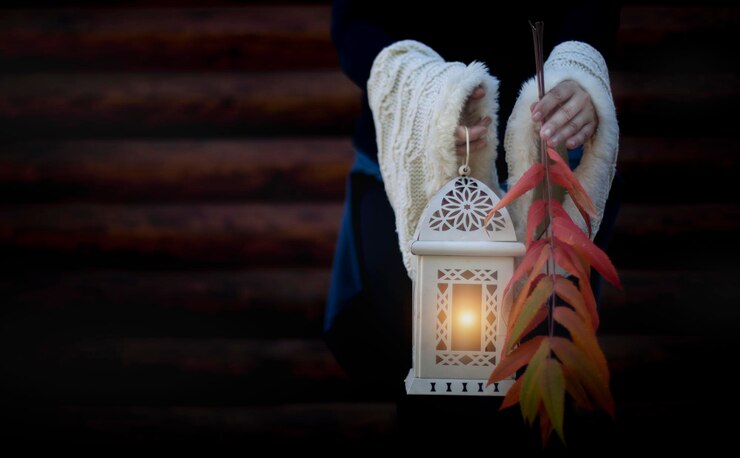Welcoming the Sacred Month of Ramadan A Journey of Fasting Faith and Festivity

Introduction to the Significance of Ramadan
Ramadan, a month-long period of fasting and prayer, holds immense significance in the Islamic calendar. During this sacred time, Muslims around the globe come together in devotion and reflection as they commemorate the revelation of the Quran to the Prophet Muhammad. Happy Ramzan is a phrase exchanged warmly among the Muslim community, signaling the beginning of this revered month. For those observing, it is a time for self-purification, spiritual growth, and communal harmony.
Ramadan is not only about abstaining from food and drink during daylight hours but also a time when Muslims engage deeply with their faith, striving to improve themselves spiritually and morally. The observance of Ramadan is universal among Muslims, transcending geographic, cultural, and linguistic barriers. From Indonesia to Saudi Arabia, from the United States to Nigeria, Muslims unite in their shared experience of fasting, prayer, and community service.
In this blog post, we will explore the significance of Ramadan, the benefits of fasting, practical tips for observing the month, and the joyous celebration of Eid al-Fitr. Whether you are a lifelong observer of Ramadan or someone seeking to understand its profound importance, this guide aims to enrich your knowledge and appreciation of this holy month.
The Spiritual and Physical Benefits of Fasting
Fasting during Ramadan is a practice that has both spiritual and physical benefits. Spiritually, fasting is an act of worship that strengthens one’s relationship with Allah. It promotes self-discipline, as Muslims abstain from eating, drinking, and indulging in negative behavior from dawn until sunset. This period of fasting encourages individuals to detach from worldly distractions and focus on their inner selves.
Empathy is another crucial aspect fostered by fasting. By experiencing hunger and thirst firsthand, Muslims develop a deeper understanding of the struggles faced by those less fortunate. This heightened sense of compassion often leads to increased acts of charity and kindness throughout the month of Ramadan, reinforcing the importance of community support and care.
On a physical level, fasting has been shown to promote health benefits such as improved digestion and detoxification. By giving their bodies a break from constant consumption, many individuals report feeling rejuvenated and mentally sharper. However, it is essential to approach fasting with mindfulness and ensure proper nutrition during non-fasting hours to maintain overall well-being.
A Guide to Observing Ramadan
Observing Ramadan involves more than just fasting; it encompasses a holistic approach to personal and communal life. Each day starts with Suhoor, a pre-dawn meal, followed by the Fajr prayer. Throughout the day, Muslims engage in regular prayers, recitation of the Quran, and acts of worship as part of their daily routine.
The Iftar meal marks the end of the daily fast at sunset, often beginning with the consumption of dates and water, following the tradition of the Prophet Muhammad. During Ramadan, Iftar becomes a communal event where families and neighbors gather to share meals, fostering a strong sense of togetherness and community spirit.
Prayer plays a vital role during Ramadan, with special Taraweeh prayers performed nightly at mosques. These prayers offer a chance for reflection and spiritual connection and serve as a reminder of the importance of prayer in everyday life. Participating in these acts of worship helps reinforce the spiritual purpose of Ramadan and brings Muslims closer to their faith.
Tips for Maximizing the Spiritual Experience
To make the most of the spiritual experience during Ramadan, individuals can set personal goals that align with their religious aspirations. These goals might include memorizing verses from the Quran, engaging in regular Dhikr (remembrance of Allah), or attending religious lectures and discussions.
Charity is highly emphasized during Ramadan, and engaging in acts of kindness and generosity can enhance the spiritual experience. Giving to those in need, volunteering time, and supporting community initiatives are ways to embody the spirit of Ramadan and make a positive impact on society.
Increasing one’s religious knowledge is another way to maximize the spiritual experience. Reading the Quran, studying Hadiths, and seeking guidance from religious scholars can help deepen one’s understanding of Islam and its teachings. By focusing on spiritual growth, individuals can build a more meaningful connection with their faith.
The Celebration of Eid al-Fitr
Eid al-Fitr, the festival marking the end of Ramadan, is a joyous celebration that brings the Muslim community together in gratitude and festivity. It is a time to rejoice in the accomplishments of Ramadan, give thanks, and share happiness with family and friends.
Eid al-Fitr begins with a special prayer at the mosque, followed by festive meals, the exchange of gifts, and social gatherings. In many cultures, wearing new clothes is a tradition that symbolizes renewal and gratitude. Children often receive Eidi, small gifts or money, from elders as a token of love and blessing.
Around the world, Eid al-Fitr is celebrated with various customs and traditions that reflect the diverse cultures within the Muslim community. While the core essence of the celebration remains the same, these unique practices add richness and diversity to the global observance of Eid.
Conclusion on the Importance of Ramadan
Ramadan holds a special place in the hearts of Muslims worldwide, serving as a time for reflection, spiritual growth, and community building. The month of fasting offers numerous benefits, nurturing both the soul and body while fostering a deep sense of empathy and connection.
By observing Ramadan with sincerity and dedication, Muslims can experience personal transformation and contribute positively to their communities. The lessons learned and the bonds formed during this sacred month have the power to bring lasting change and inspire a more compassionate, harmonious world.
We invite readers to share their own Ramadan experiences and reflections on how it has impacted their lives. Stay connected with us for more content related to faith, community, and personal growth. May this Ramadan be a source of blessings and joy for you and your loved ones. Happy Ramzan!
